The Tree That Remembers is a canadien film of genre Documentary released in USA on 1 january 2002
The Tree That Remembers (2002)
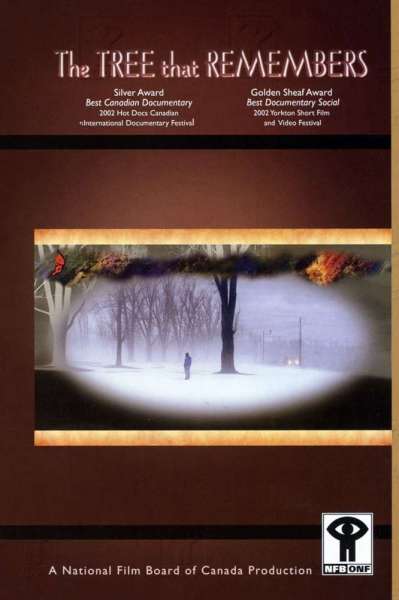
If you like this film, let us know!
- Infos
- Casting
- Technical infos
- Photos
- Videos
- Film quotes
- Characters
- Music
- Awards
Released in USA 1 january 2002
Length 50minutes
OriginCanada
Genres Documentary
Themes Films about immigration, Documentary films about law, Documentary films about historical events, Documentaire sur une personnalité
Rating74%










The Tree That Remembers is a 2002 animated documentary by Iranian filmmaker Masoud Raouf, exploring the lives of former political prisoners like himself who had been active in the democratic movement during the days of the Shah of Iran, only to face imprisonment and torture under the Islamic regime after the 1979 Iranian revolution.
Produced by the National Film Board of Canada, awards for the film included the Silver Award for Best Canadian Documentary at Hot Docs, as well as a Golden Sheaf Award for Best Social Documentary at the Yorkton Film Festival.
Comments
Leave comment :
Suggestions of similar film to The Tree That Remembers
There are 8951 with the same cinematographic genres, 4204 films with the same themes (including 24 films with the same 4 themes than The Tree That Remembers), to have finally 70 suggestions of similar films.If you liked The Tree That Remembers, you will probably like those similar films :

The Jewish Steppe (2001)
, 16minutesGenres Documentary
Themes Films about immigration, Films about religion, Documentary films about law, Documentary films about historical events, Documentaire sur une personnalité, Documentary films about religion, Political films, Films about Jews and Judaism

The Unreturned (2010)
, 1h15Genres Documentary
Themes Films about immigration, Documentary films about law, Documentary films about war, Documentary films about historical events, Documentaire sur une personnalité, Political films
 , 52minutes
, 52minutesOrigin Algerie
Genres Documentary
Themes Films set in Africa, Films about immigration, Documentary films about law, Documentary films about war, Documentary films about historical events, Documentaire sur une personnalité, Documentary films about politics, Political films
In 1939, the end of the Spanish Civil War forced thousands of men, women and children to flee Francoist Spain. The French administration in Algeria opened refugee camps to take them in. Seventy years later, a young Algerian investigates the past. Despite the absence of archives and files, the traces of these camps have survived the collective oblivion and still appear in current Algeria.
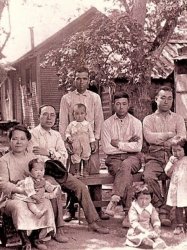
A Family Gathering (1988)
, 30minutesOrigin USA
Genres Documentary
Themes Films about families, Films about immigration, Prison films, Films about racism, Documentary films about business, Documentary films about the film industry, Documentary films about racism, Documentary films about law, Documentary films about war, Documentary films about historical events, Documentaire sur une personnalité, Political films, Documentary films about World War II, Autobiographical documentary films
Actors Keith Hamilton Cobb
Rating23%





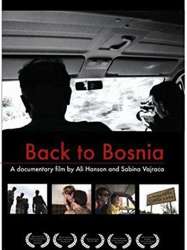
Back to Bosnia (2005)
, 1h15Directed by Sabina Vajrača
Genres War, Documentary
Themes Films about immigration, Documentary films about law, Documentary films about historical events, Documentaire sur une personnalité, Political films
Rating76%





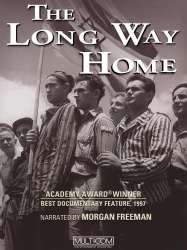
The Long Way Home (1997)
, 2hOrigin USA
Genres War, Documentary, Historical
Themes Films about immigration, Films about religion, Documentary films about law, Documentary films about historical events, Documentaire sur une personnalité, Documentary films about religion, Films about Jews and Judaism
Actors Morgan Freeman, Edward Asnere, Sean Astin, Martin Landau, Miriam Margolyes, David Paymer
Rating75%





Quelques mois avant la Seconde Guerre mondiale, une extraordinaire opération de sauvetage a arraché 10 000 enfants et adolescents juifs au régime nazi. Rapatriés en Grande-Bretagne pour être adoptés, ils durent tisser de nouveaux liens familiaux, supporter les bombardements pour certains, aller libérer leurs propres parents restés en Allemagne. Ils ont tous d'inoubliables histoires à raconter dans ce documentaire.

Barefoot to Herat (2002)
, 1h10Directed by Majid Majidi
Genres Documentary
Themes Films about immigration, Films about terrorism, Documentary films about law, Documentary films about war, Documentary films about historical events, Documentaire sur une personnalité, Political films
Rating75%






Nicky's Family (2011)
, 1h36Directed by Matej Mináč
Genres Drama, Documentary
Themes Films about immigration, Films about racism, Films about religion, Documentary films about racism, Documentary films about law, Documentary films about war, Documentary films about historical events, Documentaire sur une personnalité, Documentary films about religion, Political films, Films about Jews and Judaism, Documentary films about World War II
Actors Klara Issova
Rating80%





"La famille de Nicky" est l'histoire extraordinaire de Nicholas Winton, surnommé le Schnindler britannique, qui avant le début de la seconde guerre mondiale, entre mars et août 1939, a sauvé 669 enfants tchèques et slovaques, pour la plupart juifs, du génocide nazi. Le film mêle fiction, documents d'archives inédits, et témoignages émouvants des protagonistes de cette histoire, parmi lesquels Nicholas Winton en personne et Joe Schlesinger, journaliste à la CBC et narrateur du film. La "famille" de Nicholas Winton compte aujourd'hui plus de 5 000 personnes dans le monde entier, qui lui doivent la vie.

Cuban Rafters (2002)
Genres Documentary
Themes Films about immigration, Seafaring films, Transport films, Documentary films about law, Documentary films about historical events, Documentaire sur une personnalité, Documentary films about technology
Actors Maria Celeste Arrarás
Rating70%





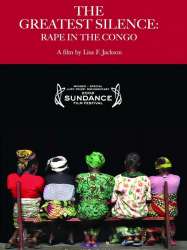 , 1h16
, 1h16Origin USA
Genres Documentary
Themes Films set in Africa, Films about immigration, Documentary films about law, Documentary films about war, Documentary films about historical events, Documentaire sur une personnalité
Rating72%





In 2006, producer/director Lisa F. Jackson travelled alone to the war zones of the Democratic Republic of the Congo documenting the plight of women and girls impacted by the conflicts there. She was "afforded privileged access" to the realities of life in Congo, and found "examples of resiliency, resistance, courage and grace". In a 2008 interview with NPR, Jackson said "I knew going to eastern Congo as a white woman alone in the bush with a video camera that I might as well have landed from a spaceship." Jackson had been a victim of gang rape thirty years earlier, and shared this experience with the survivors she interviewed. Much of the film features these women recounting their stories, which have left them "traumatised and isolated - shunned by society and their families, and suffering life-long health effects, including HIV." Context and background are discussed in interviews with doctors, politicians, peacekeepers, activists and priests. Jackson visits a clinic devoted to treating women with traumatic injury due to sexual violence, particularly cases of vesicovaginal and rectovaginal fistula. In addition, Jackson went out into the bush to interview some of the perpetrators, soldiers who spoke without apparent conscience about the women they had raped, and their often bizarre justifications. "You really can say that there's a culture of impunity in the Congo, where none of these men will face arrest for what they've confessed to me on videotape," Jackson noted. The focus of the film, though, is the stories of the victims, "who just poured their hearts out to me with these stories, including over and over again, please take these stories to someone who will make a difference.
 Connection
Connection